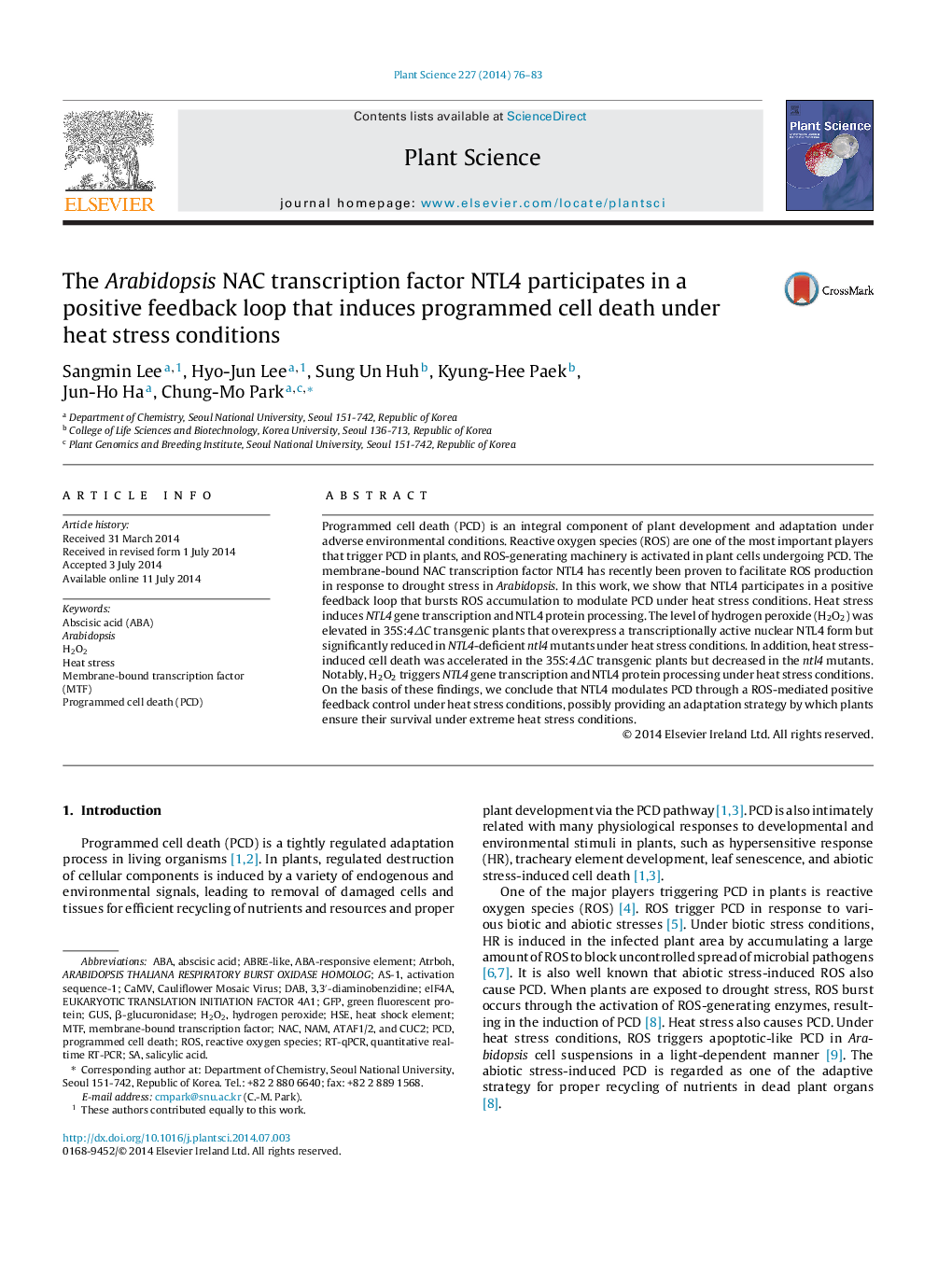| Article ID | Journal | Published Year | Pages | File Type |
|---|---|---|---|---|
| 8358198 | Plant Science | 2014 | 8 Pages |
Abstract
Programmed cell death (PCD) is an integral component of plant development and adaptation under adverse environmental conditions. Reactive oxygen species (ROS) are one of the most important players that trigger PCD in plants, and ROS-generating machinery is activated in plant cells undergoing PCD. The membrane-bound NAC transcription factor NTL4 has recently been proven to facilitate ROS production in response to drought stress in Arabidopsis. In this work, we show that NTL4 participates in a positive feedback loop that bursts ROS accumulation to modulate PCD under heat stress conditions. Heat stress induces NTL4 gene transcription and NTL4 protein processing. The level of hydrogen peroxide (H2O2) was elevated in 35S:4ÎC transgenic plants that overexpress a transcriptionally active nuclear NTL4 form but significantly reduced in NTL4-deficient ntl4 mutants under heat stress conditions. In addition, heat stress-induced cell death was accelerated in the 35S:4ÎC transgenic plants but decreased in the ntl4 mutants. Notably, H2O2 triggers NTL4 gene transcription and NTL4 protein processing under heat stress conditions. On the basis of these findings, we conclude that NTL4 modulates PCD through a ROS-mediated positive feedback control under heat stress conditions, possibly providing an adaptation strategy by which plants ensure their survival under extreme heat stress conditions.
Keywords
HSEas-1ABA-responsive elementMtFPCDCaMVGUSRT-qPCRNACGFPDABABA3,3′-diaminobenzidineeIF4AROSquantitative real-time RT-PCRβ-glucuronidaseHydrogen peroxideArabidopsisHeat stressAbscisic acid (ABA)abscisic acidSalicylic acidheat shock elementProgrammed cell deathprogrammed cell death (PCD)H2O2cauliflower mosaic virusgreen fluorescent proteinReactive oxygen species
Related Topics
Life Sciences
Agricultural and Biological Sciences
Plant Science
Authors
Sangmin Lee, Hyo-Jun Lee, Sung Un Huh, Kyung-Hee Paek, Jun-Ho Ha, Chung-Mo Park,
